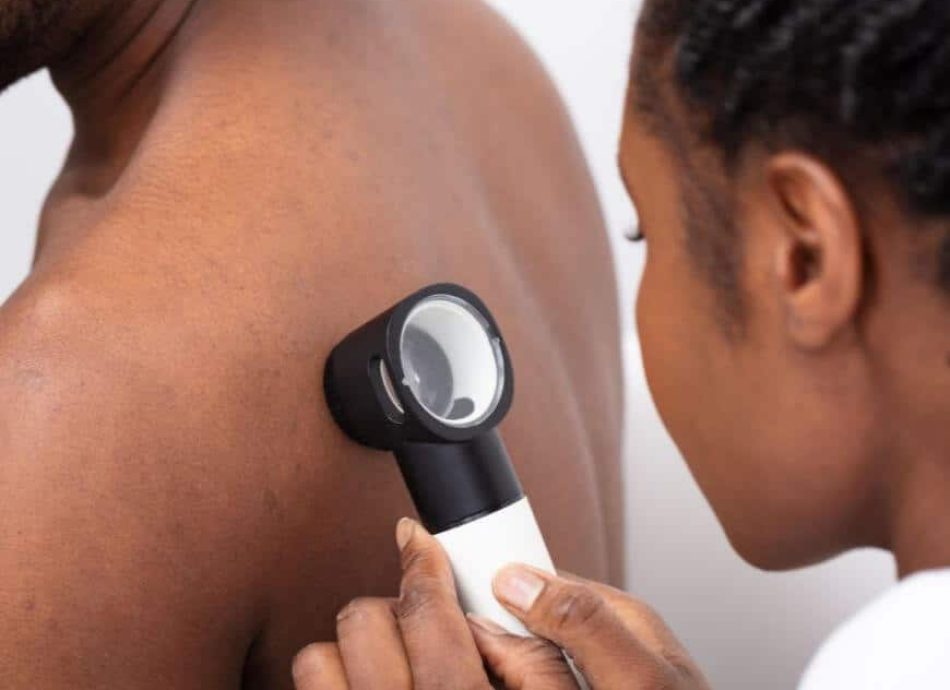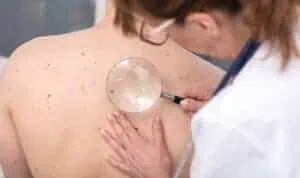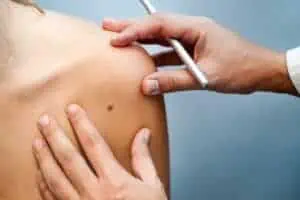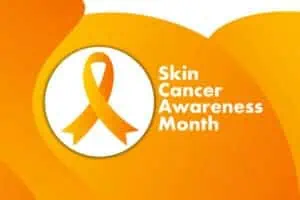Endovenous Laser Treatment
Home » Treatments » Endovenous Laser Treatment
Award winning dermatology service, with over 20 years on experience
Short waiting lists, on some occasions offering same week appointments
Safe environment, in Care Quality Commission approved facilities
Conditions:
What is Endovenous Laser ABLATION (EVLA)?
Endovenous Laser Ablation (EVLA) is a minimally invasive procedure for treating varicose veins and venous insufficiency. EVLA uses laser energy to close and seal the afflicted veins from within. In general, EVLA is regarded as a safe and efficient treatment for varicose veins. It has several advantages over traditional vein stripping, including a shortened recovery period, minimal scarring and a decreased risk of complications.

Is EVLA treatment effective for varicose veins?
Yes, Endovenous laser treatment (Endovenous Laser Ablation – EVLA) is regarded as an effective treatment for varicose veins. Due to its efficacy and minimally invasive nature, it has become a popular and widely accepted alternative to conventional surgical procedures such as vein removal. It has been demonstrated that EVLA treatment has a high success rate in closing and treating varicose veins.
Is EVLA treatment suitable for all types of varicose veins?
The EVLA (Endovenous Laser Ablation) procedure is predominantly intended to treat saphenous vein reflux, a common cause of varicose veins. However, it may not be appropriate for all varicose vein varieties. The suitability of EVLA depends on several factors, including the veins’ size, location and underlying cause.
How Does endovenous laser treatment work?
How many sessions of EVLA treatment are typically required?
How long does an endovenous laser treatment session typically take?
ARE THERE ANY RISKS OR SIDE EFFECTS ASSOCIATED WITH EVLA TREATMENT?
The potential risks and side effects of EVLA include pain and discomfort, bruising and tenderness, swelling (edema) and inflammation, numbness or altered sensation and skin discolouration.
IS EVLA TREATMENT PAINFUL?
Frequently Asked Questions
HOW LONG IS THE RECOVERY PERIOD AFTER EVLA TREATMENT?
CAN I RESUME NORMAL ACTIVITIES IMMEDIATELY AFTER EVLA TREATMENT?
Almost immediately after EVLA (Endovenous Laser Ablation) treatment, the majority of patients can resume normal activities. Unlike conventional surgical procedures for varicose veins, EVLA is a minimally invasive procedure that typically permits a speedier recovery.
ARE THE RESULTS OF EVLA TREATMENT PERMANENT?
CAN PREGNANT WOMEN UNDERGO EVLA TREATMENT?
CAN EVLA TREATMENT BE COMBINED WITH OTHER VEIN TREATMENTS?
REQUEST A CALL BACK
Please fill in this form and one of our team will give you a call back to arrange a consultation with one of our expert dermatologists.

HEAR FROM OUR PATIENTS
WHY CHOOSE endovenous laser treatment FROM STRATUM DERMATOLOGY CLINICS?
INSIGHTS AND ADVICE

When Should I Worry About A Mole
WHEN SHOULD I WORRY ABOUT A MOLE? A mole is a coloured spot on the skin which is made up of a cluster of cells known as melanocytes which are responsible for producing the pigment in your skin. Sometimes these melanocytes grow in a cluster

What are the common types of skin cancer?
WHAT ARE THE COMMON TYPES OF SKIN CANCER? There are three main types of skin cancer, basal cell carcinoma (BCC), squamous cell carcinoma (SCC) and melanoma. The first two are both known as non-melanoma skin cancer and are the most common varieties. Non-melanoma skin cancer

Skin Cancer Awareness Month
SKIN CANCER AWARENESS MONTH. Skin cancer awareness month takes place every May with the aim of raising awareness of the dangers of unprotected sun exposure and educating on the ways skin cancer can be prevented. During skin cancer awareness month, the British Association of Dermatologists
